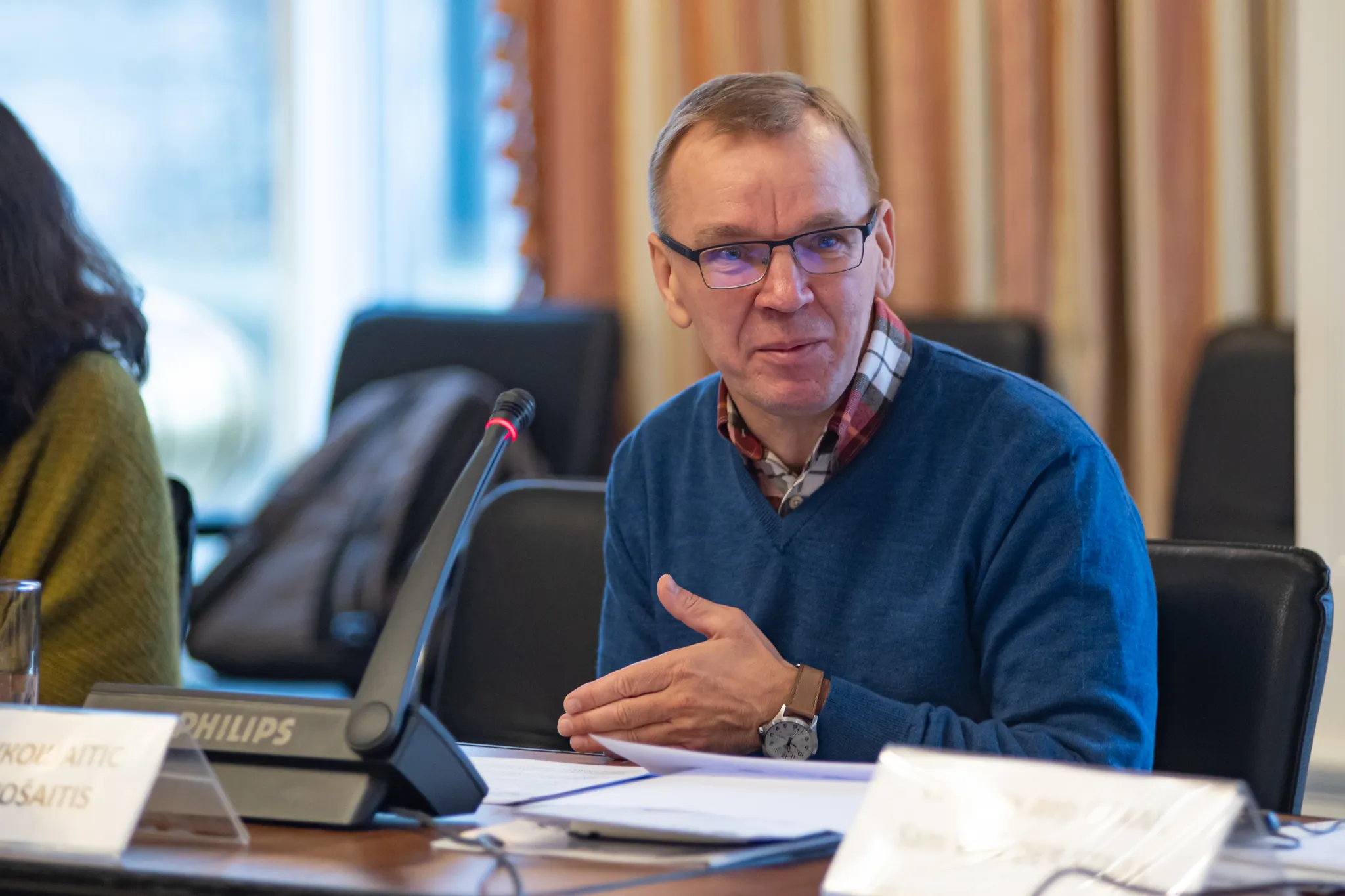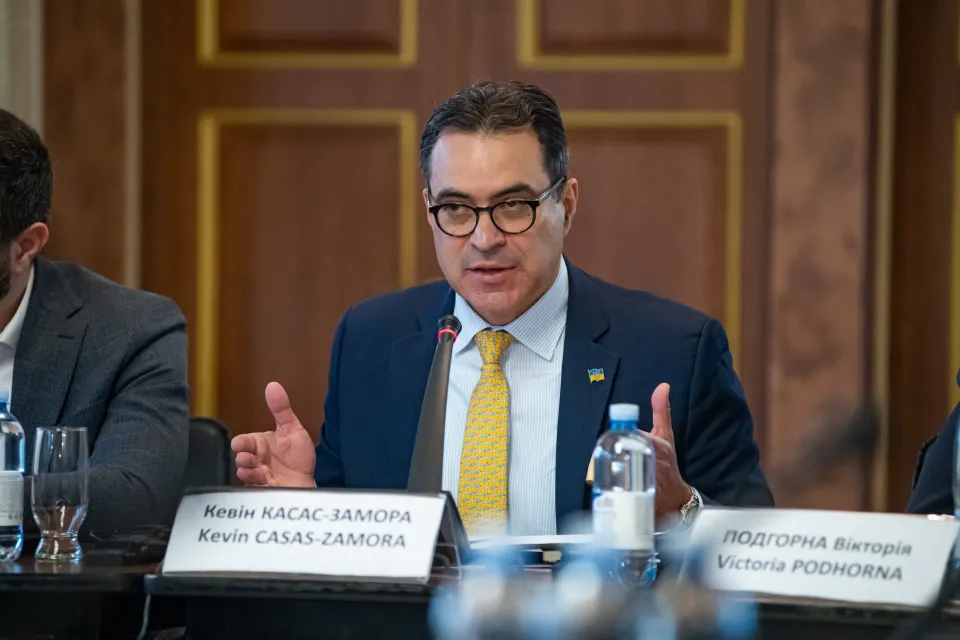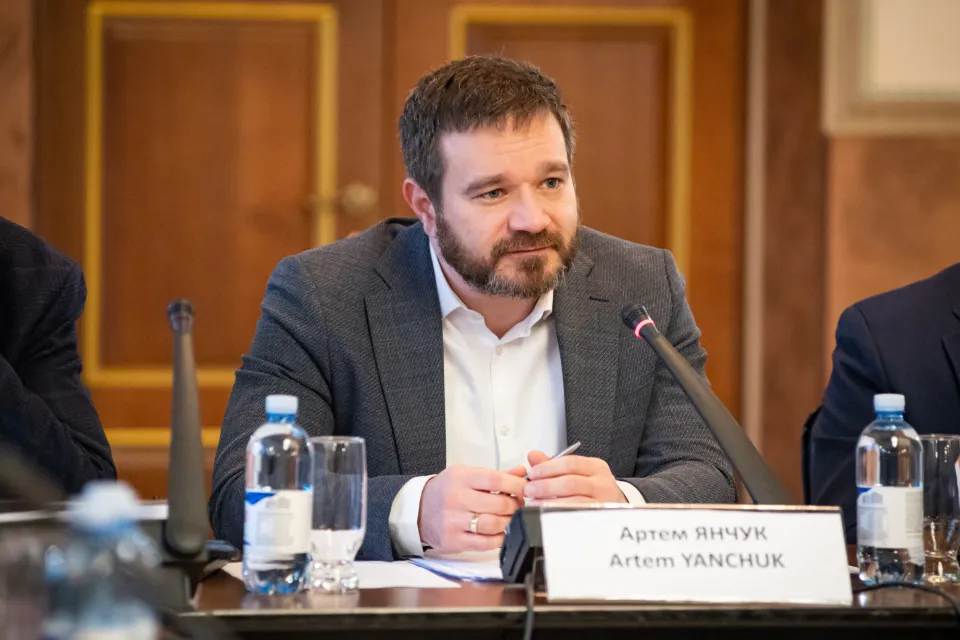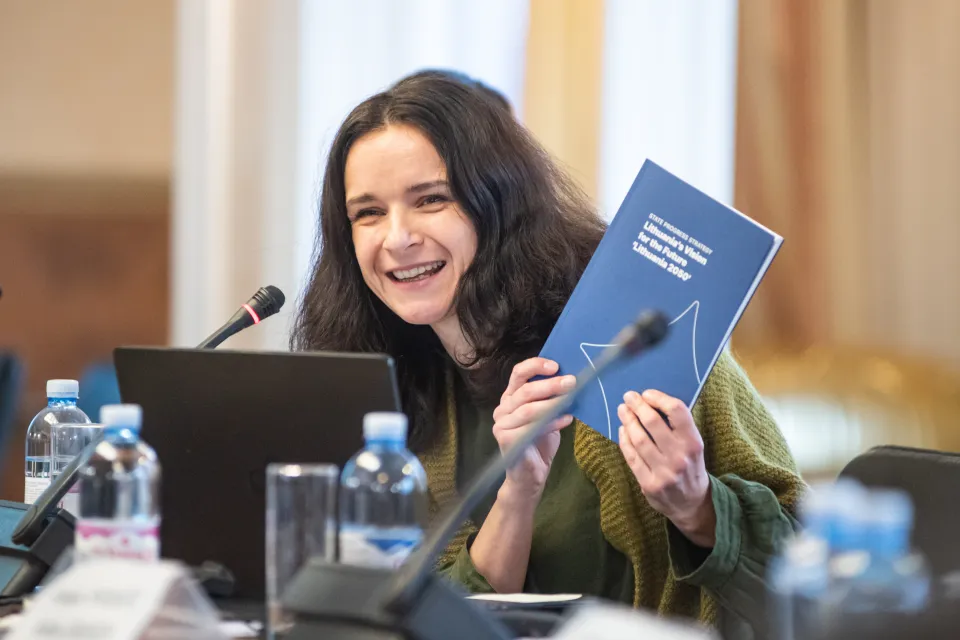Strategic foresight in action: Strengthening democracy in Ukraine

The seminar brought together Ukrainian Members of Parliament (MPs), international experts, and representatives from Denmark, Lithuania, France, the European Parliament, and global organizations, this seminar explored the power of foresight in navigating Ukraine’s current challenges and shaping its long-term future.
Held amid the ongoing war, the event underscored strategic foresight as both a governance tool and a cultural shift - helping Ukraine anticipate uncertainties, plan for resilience, and align its trajectory with democratic values and European Union (EU) integration goals.
Leadership and purpose
The seminar was co-chaired by Ukrainian MP Viktoria Podgorna, Co-Chair of the Verkhovna Rada Interfactional Union on Strategic Foresight, and Jonathan Murphy, Head of Programme, Inter Pares. Through high-level keynote speeches, interactive sessions, and panel discussions, participants explored how foresight practices can strengthen Ukraine’s parliamentary processes and foster international collaboration.
Opening remarks
Deputy Speaker of the Verkhovna Rada, Oleksandr Korniienko, emphasized Ukraine’s dual role as a defender of sovereignty and a leader in democratic transformation. He praised ongoing efforts to institutionalize foresight within the Verkhovna Rada and commended the leadership of the Interfactional Union. Korniienko described foresight as both a strategic necessity and a moral act of resilience in the face of authoritarian aggression, calling for deeper cooperation with European partners to strengthen Ukraine’s democratic future.
Viktoria Podgorna outlined the achievements of the Interfactional Union since its founding in 2021, including its expansion to 30 MPs across parliamentary factions and major projects such as Scenarios Ukraine 2040, which mapped four potential futures for the country. She highlighted the importance of citizen engagement through digital tools such as Telegram bots and online consultations, noting that public participation is vital for democratic foresight processes. Podgorna also acknowledged ongoing resource challenges and urged greater international support to sustain Ukraine’s growing foresight capacity.
Keynote address: Global lessons for democratic resilience
Kevin Casas-Zamora, Secretary General of the International Institute for Democracy and Electoral Assistance (International IDEA), described Ukraine as a global symbol of democratic resilience. He stressed that foresight is an essential instrument for navigating uncertainty and strengthening governance in times of crisis. Drawing on global best practices such as scenario planning and trend analysis, Casas-Zamora encouraged Ukraine to embed foresight as a cornerstone of its democratic future. He concluded by calling for continued collaboration with international partners to ensure that foresight becomes an enduring element of Ukraine’s governance culture.
Panel discussions and perspectives
The seminar’s panel discussions brought together diverse perspectives from Ukraine and its international partners, offering concrete examples of how foresight can be integrated into policymaking.
From the Ukrainian side, MPs Oleksiy Zhmerenetskyi and colleagues discussed the application of foresight tools - such as future signals radars and scenario planning - in policy debates on energy, infrastructure, and security. They emphasized the importance of balancing immediate wartime demands with long-term development priorities, arguing that foresight can help bridge these competing needs through informed, forward-looking governance.
Representing Denmark, Pernille Deleuren highlighted her country’s integration of foresight into legislative cycles. She described how Denmark uses scenario planning and broad stakeholder input to address long-term challenges such as climate change, demographic shifts, and technological disruption, offering insights for Ukraine’s evolving approach to parliamentary foresight.
The Lithuanian contribution focused on the “Vision 2050” project, a participatory foresight initiative that combines inclusivity and cultural identity with strategic planning. Lithuanian speakers encouraged Ukraine to further institutionalize foresight practices by investing in training, building technical capacity, and strengthening partnerships between government institutions and civil society.
Representatives from the French National Assembly shared how foresight supports France’s responses to geopolitical uncertainty and promotes democratic resilience, reaffirming the country’s solidarity with Ukraine. Similarly, speakers from the European Parliament discussed the growing role of foresight in shaping policies on climate, energy, and security. They invited Ukraine to collaborate with the Parliament’s foresight units to exchange methodologies and develop shared strategies for managing long-term risks and opportunities.
Key themes and insights
Across discussions, participants consistently framed foresight as a vital tool for Ukraine’s recovery and long-term development. It enables policymakers to anticipate disruption, design adaptive strategies, and strengthen resilience in a context defined by rapid change and ongoing conflict.
Public engagement emerged as another major theme. Ukrainian MPs presented innovative ways to involve citizens directly in foresight exercises through digital platforms and consultations, ensuring transparency and inclusivity. This participatory approach reflects Ukraine’s broader commitment to democratic governance and open policymaking.
International collaboration was also emphasized as essential. The exchange of experiences and methodologies with Denmark, Lithuania, France, and the European Parliament demonstrated the value of peer learning and solidarity among democracies. Finally, participants highlighted the importance of balancing short-term wartime imperatives with long-term developmental goals. Foresight, they agreed, offers a structured framework for aligning these priorities and maintaining strategic focus during uncertainty.
Looking ahead
In concluding sessions, participants discussed ways to institutionalize foresight within Ukraine’s parliamentary system. They called for greater investment in dedicated staff, digital tools, and analytical resources to ensure that foresight findings inform legislative debates and decision-making. Expanding citizen participation through consultations, surveys, and accessible digital platforms was also viewed as a key step toward embedding foresight as a public practice.
Speakers emphasized the need to deepen cooperation with European and international partners to refine methodologies, strengthen capacity, and align foresight efforts with Ukraine’s EU accession objectives. Particular focus was placed on judicial reform, anti-corruption measures, and energy independence as priority areas for strategic foresight in the coming years.
Conclusion
The seminar concluded with a shared commitment to making foresight central to Ukraine’s governance and democratic renewal. By embracing foresight as both a strategic discipline and a cultural mindset, Ukraine aims to build a more resilient, transparent, and future-ready democracy - one capable of shaping its destiny and contributing to the stability and prosperity of Europe as a whole.







